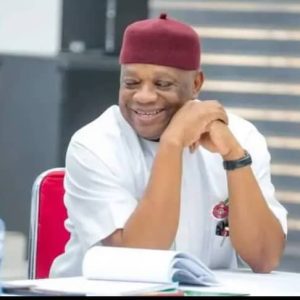 Abia North: The Case for Continuity in Proven Leadership
Abia North: The Case for Continuity in Proven LeadershipIn the evolving narrative of senatorial representation in Abia North, the tenure of Senator Orji Uzor Kalu stands out as a benchmark of transformative governance.
His legislative and developmental footprint since 2019 has not only redefined infrastructural expectations but has also recalibrated the socio-economic consciousness of the zone. The question before us is not rhetorical: Who among his predecessors or contemporaries has delivered more in the past decade?
Senator Kalu’s achievements are both quantifiable and visible. Between 2019 and 2025, he facilitated over 350 infrastructure projects, including the construction of over 140 rural roads, 130 new schools, and solar-powered street lighting across 48 communities.
These interventions have directly improved access to education, reduced post-harvest losses, and enhanced security and commerce in previously neglected areas.
His commitment to human capital development is equally notable. Thousands of youths and women have benefited from empowerment programs involving vocational tools, financial grants, and agricultural inputs. The establishment of a cashew processing factory in Igbere, projected to create over 5,000 jobs, exemplifies his strategic approach to economic sustainability.
Comparatively, previous senators from Abia North including Uche Chukwumerije and Mao Ohuabunwa while respected, did not deliver development at this scale or consistency. The National Bureau of Statistics reports that Abia North now enjoys one of the lowest poverty rates in the South-East, a direct result of sustained investments in infrastructure and education.
Even Governor Alex Otti, in a rare bipartisan gesture, acknowledged that his urban renewal strategy in Aba is modeled after Kalu’s developmental blueprint from his gubernatorial years. This cross-party validation underscores the enduring relevance of Kalu’s governance philosophy.
In a political climate often marred by recycled promises and fleeting allegiances, Senator Kalu has demonstrated continuity, competence, and credibility.
His re-election in 2023 was not merely a political victory, it was a referendum on performance. Any attempt to replace him without a demonstrably superior alternative risks reversing the gains made and plunging Abia North back into the era of legislative dormancy.
Therefore, the call for continuity is not sentimental, it is strategic. Until a contender emerges with a verifiable record that surpasses Kalu’s achievements in the past decade, the logical choice remains clear: retain the best man we have


